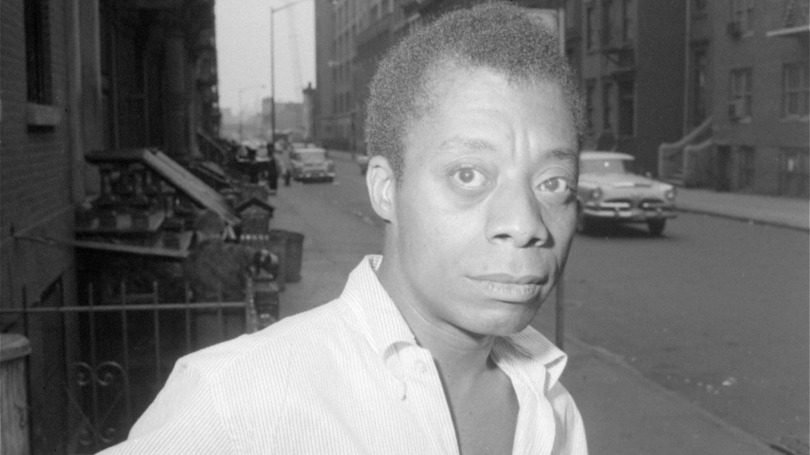
- About
- Departments & Programs
- Faculty Resources
- Governance
- Diversity
- News
Back to Top Nav
Back to Top Nav
Back to Top Nav
Back to Top Nav
The Institute for Black Intellectual and Cultural Life is honoring the author and civil rights activist's legacy with eminent scholars and writers, students, staff, and alumni.
The Institute for Black Intellectual and Cultural Life kicked off a celebration of renowned writer and civil rights activist James Baldwin on Aug. 2, which would have been his 100th birthday.
One of the most celebrated and iconic writers of the 20th century, the African-American author—who died in 1987—is known for his eloquent, passionate prose on race in America.
For 100 Days of Baldwin, the institute will feature short videos on Instagram this summer and fall where fans of Baldwin read from one of his works.
"The short video pieces are part of a layered conversation concerning the timelessness and reach of Baldwin's literary offerings, and we hope to showcase his expansive, continued appeal," says Kimberly Juanita Brown, institute director and an associate professor in the Department of English and Creative Writing.
Award-winning filmmaker Iyabo Kwayana, an assistant professor in the Department of Film and Media Studies, created a trailer for the celebration, which will culminate with a panel discussion about Baldwin's legacy on Nov. 2 at Dartmouth.
"It's a great way for audiences beyond Dartmouth to know about the Institute and our programs and initiatives, while also celebrating the life of this writer whose work is central to Black studies research," Brown says.
Brown invited scholars, writers, students, alumni, and staff to record readings of Baldwin's work. Contributors include award-winning poet and professor Vievee Francis, Latin American, Latino, and Caribbean studies professor Jorge Cuéllar, eminent cultural studies scholar Paul Gilroy, feminist scholar Gail Lewis, and celebrated poets Tommye Blount and Gregory Pardlo, as well as admissions officer Anthony Fosu '24, film librarian Lucinda Hall, and institute program coordinator Jènee Potts.
"People are choosing very different texts to read, because there's so much of Baldwin's work that is still with us. His thoughts are still very relevant today," Brown says.
Baldwin's vast body of work includes essays, novels, poetry, and plays, as well as a screenplay. He is especially lauded for his essay collections Notes of a Native Son (1955), Nobody Knows My Name (1961), and The Fire Next Time (1963)—which gave voice to America's civil rights movement.
An openly gay man, Baldwin also wrote one of the first novels to explore the theme of homosexuality, paving the way for generations of gay and lesbian writers.
Brown regularly revisits Baldwin's writing in her own scholarship and teaching.
"The first Baldwin text I read was Notes of a Native Son," Brown says. "I had never seen writing like that before. It was a shock to the system. In my research, I often return to The Devil Finds Work, and in the classroom I often teach The Fire Next Time, because it's so small and powerful. It really resonates, and students love it."
Founded in 2023, the Institute for Black Intellectual and Cultural Life is a research center rooted in the study of the Black diaspora. IBICL illuminates and preserves the centrality of the transnational Black experience for the Dartmouth community and beyond.
The video features lighting and sound by R. Michael Murray and Signe Taylor, narration by Vievee Francis, and recitations by Anthony Fosu '24, Lucinda Hall, Jenee Potts, and Jorge Cuellar.